DDR – ranked 13th by UEFA. Last 2 relegated.
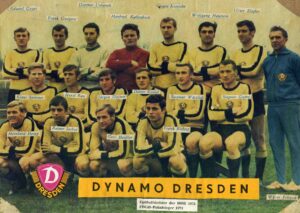
1 SG Dynamo Dresden (C) 26 18 3 5 56 29 +27 39
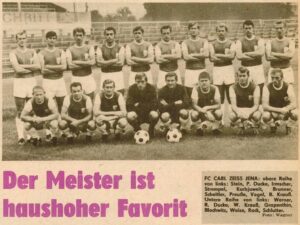 2 FC Carl Zeiss Jena 26 14 5 7 58 29 +29 33
2 FC Carl Zeiss Jena 26 14 5 7 58 29 +29 33
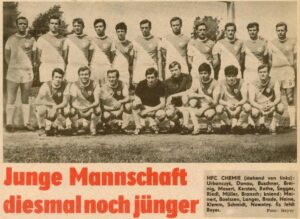 3 Hallescher FC Chemie 26 10 10 6 35 29 +6 30
3 Hallescher FC Chemie 26 10 10 6 35 29 +6 30
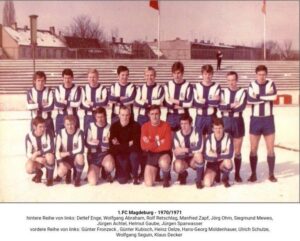 4 1. FC Magdeburg 26 10 7 9 37 38 −1 27
4 1. FC Magdeburg 26 10 7 9 37 38 −1 27
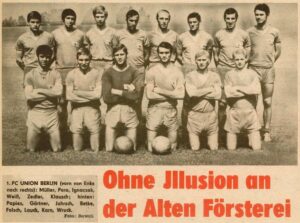 5 1. FC Union Berlin 26 8 11 7 27 33 −6 27
5 1. FC Union Berlin 26 8 11 7 27 33 −6 27
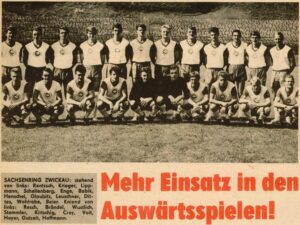 6 BSG Sachsenring Zwickau 26 11 4 11 40 42 −2 26
6 BSG Sachsenring Zwickau 26 11 4 11 40 42 −2 26
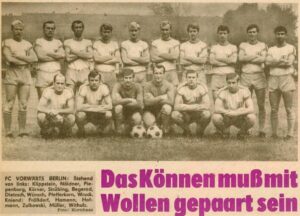 7 FC Vorwärts Berlin 26 10 6 10 38 44 −6 26
7 FC Vorwärts Berlin 26 10 6 10 38 44 −6 26
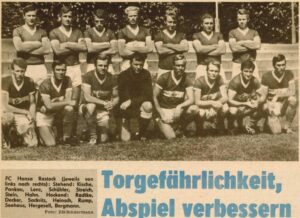 8 F.C. Hansa Rostock 26 10 5 11 31 25 +6 25
8 F.C. Hansa Rostock 26 10 5 11 31 25 +6 25
 9 BFC Dynamo 26 10 5 11 31 29 +2 25
9 BFC Dynamo 26 10 5 11 31 29 +2 25
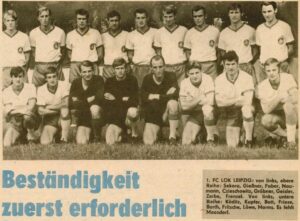 10 1. FC Lokomotive Leipzig 26 9 6 11 42 46 −4 24
10 1. FC Lokomotive Leipzig 26 9 6 11 42 46 −4 24
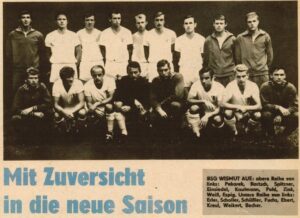 11 BSG Wismut Aue 26 8 5 13 30 36 −6 21
11 BSG Wismut Aue 26 8 5 13 30 36 −6 21
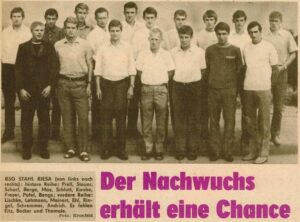 12 Stahl Riesa 26 6 9 11 28 41 −13 21
12 Stahl Riesa 26 6 9 11 28 41 −13 21
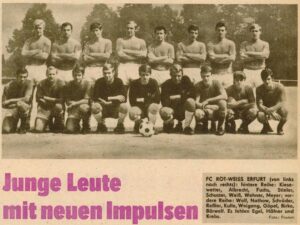 13 FC Rot-Weiss Erfurt (R) 26 6 9 11 28 44 −16 21
13 FC Rot-Weiss Erfurt (R) 26 6 9 11 28 44 −16 21
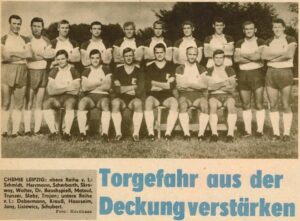 14 BSG Chemie Leipzig (R) 26 5 9 12 27 43 −16 19
14 BSG Chemie Leipzig (R) 26 5 9 12 27 43 −16 19
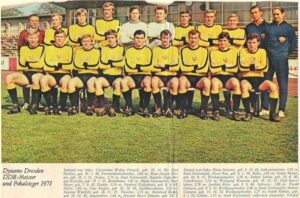 Dynamo (Dresden) won their 2nd title after a long wait – since 1952-53.
Dynamo (Dresden) won their 2nd title after a long wait – since 1952-53.
